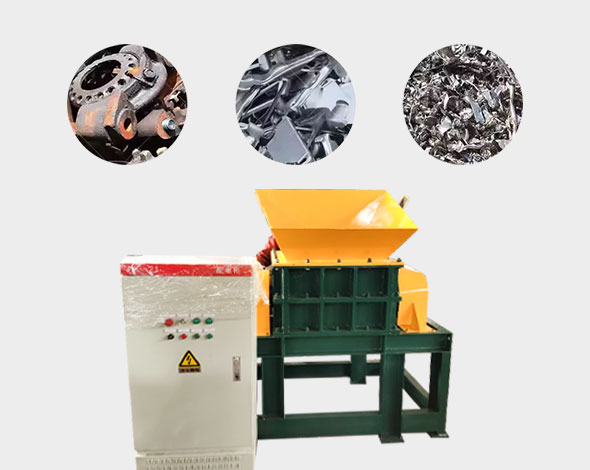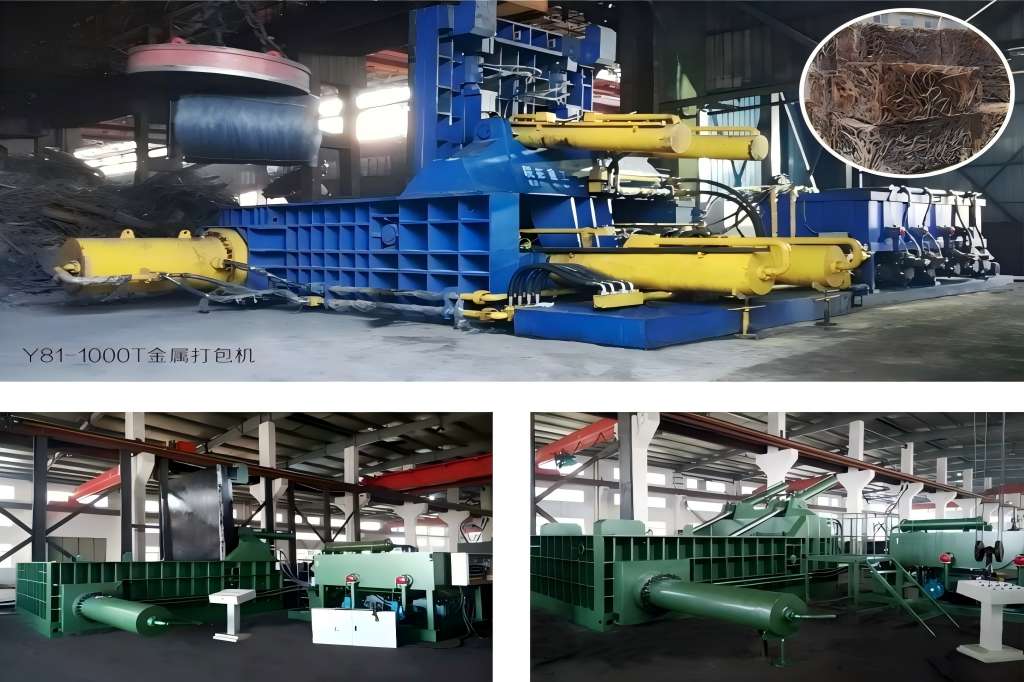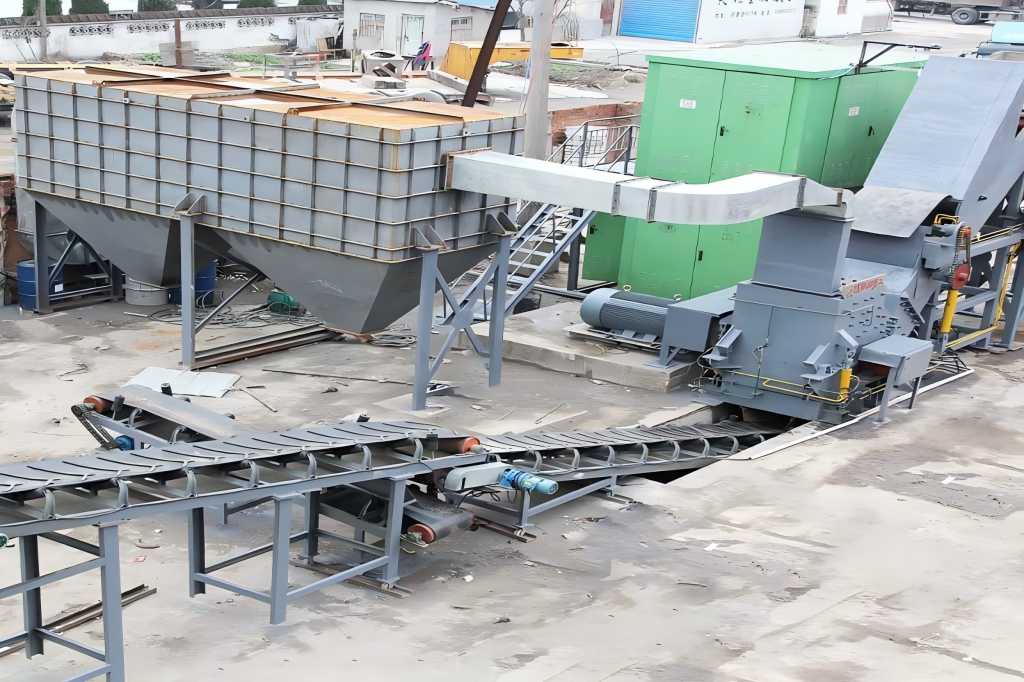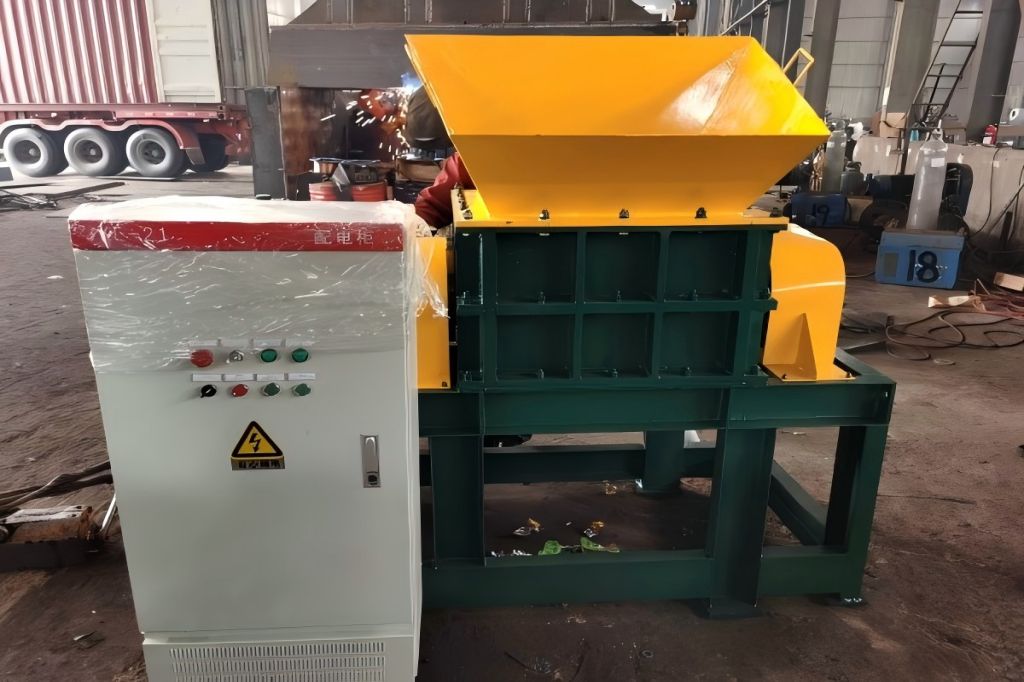Recycling has become a crucial part of modern industries, with metal shredding machines playing a significant role in processing waste materials. Tin and aluminum cans are two of the most often recycled materials. But when it comes to efficiency in an industrial metal shredder machine, which type of can performs better?
Introduction to Aluminum and Tin Cans
Aluminum and tin cans are widely used in the packaging industry, particularly for beverages, food, and industrial products. Both materials serve the same purpose—providing durable, lightweight, and convenient packaging. However, their physical and chemical differences lead to varying results when processed in industrial metal shredders.
Aluminum Cans
Aluminum cans are composed primarily of lightweight aluminum, known for its corrosion resistance, recyclability, and high scrap value. These cans are predominantly used for carbonated drinks, beer, and energy drinks. The widespread use of aluminum cans in the beverage industry has contributed to their dominance in the metal recycling sector.
Tin Cans
Despite their name, modern tin cans are primarily made of steel with a thin layer of tin coating to prevent rust and corrosion. They are commonly used for canned food, paint containers, and aerosol products. Steel’s durability makes these cans tougher but also more challenging to process in some shredding operations.
How Industrial Metal Shredders Process Aluminum and Tin Cans
Strong devices called industrial metal shredders are made to reduce metal trash into smaller, easier-to-handle pieces for recycling or additional processing. These shredders are equipped with rotating blades, hammers, or cutting edges that break down the metal into uniform fragments. The efficiency of the shredding process depends on the properties of the material being shredded.
1. Material Hardness and Density
One of the most critical factors in shredding efficiency is the hardness and density of the material.
- Aluminum cans: Aluminum is a relatively soft metal with a density of 2.7 g/cm³. This makes it easy to shred with minimal resistance, reducing strain on the machine’s blades.
- Tin cans: Since tin cans are made of steel, they have a higher density of 7.85 g/cm³. The increased hardness and density make tin cans more resistant to shredding, requiring more force and sharper, more durable blades.
2. Shredding Speed and Performance
- Aluminum cans: The softer nature of aluminum allows for faster processing speeds. Industrial shredders can handle large quantities of aluminum cans efficiently, ensuring a steady output for recycling facilities.
- Tin cans: Due to their higher strength, tin cans require more time and effort to shred. This can slow down overall processing speeds and reduce the efficiency of a shredding operation.
3. Wear and Tear on Shredder Blades
- Aluminum cans: These cans cause less wear and tear on shredder blades, as aluminum is a softer material. This extends the lifespan of shredding components, reducing maintenance costs.
- Tin cans: The hardness of steel leads to faster blade wear, requiring more frequent sharpening or replacement. This increases the long-term operating costs of an industrial shredder.
4. Energy Consumption
- Aluminum cans: Because they are less dense and more pliable, they require less energy to shred. This makes aluminum shredding more cost-effective in terms of energy usage.
- Tin cans: Demand more power due to the strength of steel, leading to higher electricity consumption per ton of processed material.
5. Contamination and Residue
- Aluminum cans: Beverage cans typically have minimal residue, making them easier to process and clean.
- Tin cans: Food cans often contain organic residue and other contaminants such as labels, coatings, or plastic linings, requiring additional cleaning before recycling.
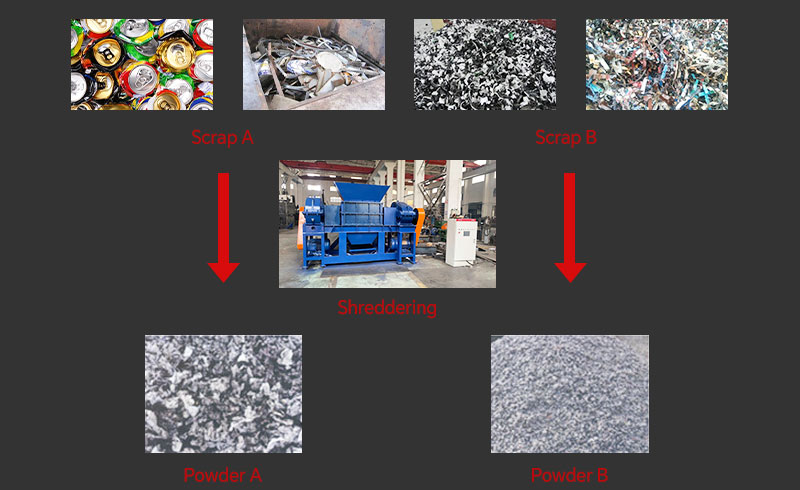
Economic and Environmental Impact
Beyond the shredding process, the decision between aluminum and tin cans extends to their economic and environmental implications.
1. Scrap Value and Market Demand
- Aluminum cans: Due to its high scrap value, aluminum is one of the most valuable metals in the recycling sector. Recycling facilities actively seek aluminum due to its profitability and sustainability.
- Tin cans: Steel cans have a lower market value compared to aluminum. While steel recycling is common, the additional processing steps (such as tin removal) make them less attractive for recyclers.
2. Recycling Efficiency and Sustainability
- Aluminum cans: Recyclable indefinitely without sacrificing quality. Recycling aluminum is a green alternative because it uses only 5% of the energy required to create new aluminum from raw ore.
- Tin cans: Require additional steps in the recycling process, such as separating the tin coating from the steel. This makes recycling steel cans more difficult and expensive.
3. Environmental Footprint
- Aluminum cans: have a smaller carbon footprint since recycling aluminum uses a lot less energy than producing steel.
- Tin cans: While still recyclable, the process generates more emissions and requires greater energy consumption.
Comparison Table: Aluminum Cans vs. Tin Cans in Industrial Metal Shredding
| Criteria | Aluminum Cans | Tin Cans (Steel Cans) |
| Material Composition | Pure aluminum | Steel with tin coating |
| Density (g/cm³) | 2.7 | 7.85 |
| Hardness | Soft, malleable | Hard, rigid |
| Shredding Speed | Faster | Slower |
| Energy Consumption | Lower | Higher |
| Wear on Shredder Blades | Minimal | Higher wear and tear |
| Residue and Contamination | Lower | Higher (food residue, coatings) |
| Scrap Value | High | Low |
| Recycling Efficiency | High, retains quality | Requires additional processing |
| Environmental Impact | Lower energy consumption | More processing needed |
Which Material is More Efficient for Industrial Shredding?
Considering all factors—shredding speed, energy consumption, wear and tear on blades, and recyclability—aluminum cans are the more efficient choice for industrial metal shredders. Their lightweight nature, high scrap value, and ease of processing make them ideal for recycling operations focused on maximizing efficiency.
Conclusion
While both aluminum and tin cans have a place in the recycling industry, aluminum cans provide superior efficiency in industrial shredding. They require less energy, cause less wear on shredding equipment, and offer higher profitability due to their increased scrap value. For recycling facilities aiming for cost-effective and sustainable operations, prioritizing aluminum can shredding is the optimal choice.

